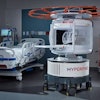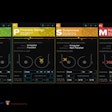
Radiology residents appreciate the opportunity to gain real-world experience with artificial intelligence (AI) technology in the clinical workflow, according to research published September 26 in Clinical Imaging.
As a step toward developing an AI-targeted curriculum, a group from the University of Massachusetts Chan Medical School provided senior radiology residents with access to a commercial AI-based decision-support system for clinical use. Afterward, the researchers found that over 90% of the residents supported incorporating AI into the curriculum.
Notably, the residents particularly appreciated the ability to use AI in a supplementary role for triaging and troubleshooting.
"Our experience implementing [AI-based decision-support system] in the clinical setting was a desirable and positive experience for our residents that will better prepare them as radiologists and help them capitalize on future opportunities in AI advancements," wrote first author Dr. Tina Shiang and colleagues. "We hope our experience will provide incentive and guidance for other institutions to establish an AI program for their trainees."
In an effort to increase radiology resident exposure to AI, radiologists at the University of Massachusetts initially developed an AI didactics curriculum and established an AI journal club. They also implemented an initiative geared towards providing radiology residents with practical experience using AI in the clinical workflow.
After previously limiting access to their institution's AI-based decision-support software (Aidoc) to attending radiologists, the department granted access to senior residents beginning in 2021. These included third- and fourth-year residents, as well as recent graduates (and current fellows). The residents were also allowed to experiment with AI tools in a clinical environment.
To assess the utility and impact of the program, the researchers then surveyed 15 residents after they used the software in the clinical workflow. There was an 80% response rate to the survey.
Overall, 91.3% of residents supported the incorporation of AI into the curriculum.
"An AI-targeted curriculum is vital for preparing our future radiologists, and trainees view it as an exciting aspect of radiology work," they wrote.
The residents also found AI to be useful in a variety of clinical applications:
- Triaging: 83.3%
- Troubleshooting: 66.7%
- Speed: 41.7%
- Diagnosis determination: 16.7%
In other findings, 66.7% of residents considered earlier exposure to AI to be useful. There was no consensus, though, as to when to introduce residents to AI.
Also, 83.3% of participating residents had a positive outlook on the impact of AI on radiology. Furthermore, 50% were excited to further their understanding of the technology, according to the researchers.
The researchers noted that it was a pilot study to evaluate the value of providing residents with this AI experience.
"In the future, we may consider expanding this opportunity to junior residents, but more data is needed before we reevaluate this decision," they wrote.
Overall, however, the researchers believe that their study effectively demonstrates the value of incorporating an AI-based decision-support system in resident education and serves as a proof of concept of how it may be successfully implemented.
"There still exists a significant gap in AI education during radiology training, and we encourage all programs to take steps in developing a strong AI-targeted curriculum that is tailored to meet their learner's needs," the authors wrote. "Ideally, AI education will be assimilated into all career stages, beginning in medical school and continuing throughout residency, fellowship, and as a practicing radiologist."




















